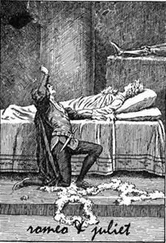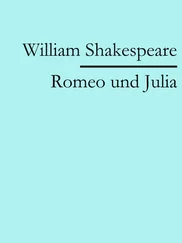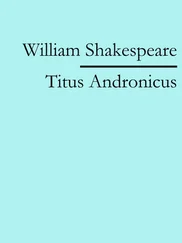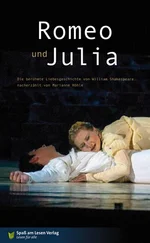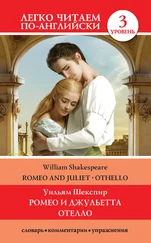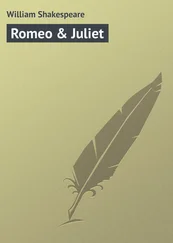CITIZENS. Clubs, bills, and partisans! Strike! Beat them down! Down with the Capulets! Down with the Montagues!
(Enter old Capulet in his gown, 9and his wife.)
CAPULET. What noise is this? Give me my long sword, ho!
LADY CAPULET. A crutch, a crutch! Why call you for a sword?
(Enter old Montague and his wife.)
CAPULET. My sword, I say! Old Montague is come
And flourishes his blade in spite of me.
MONTAGUE. Thou villain Capulet! – Hold me not. Let me go.
LADY MONTAGUE. Thou shalt not stir one foot to seek a foe.
(Enter Prince Escalus, with his train.)
PRINCE ESCALUS. Rebellious subjects, enemies to peace,
Profaners of this neighbour-stainèd steel –
Will they not hear? What, ho – you men, you beasts,
That quench the fire of your pernicious rage
With purple fountains issuing from your veins!
On pain of torture, from those bloody hands
Throw your mistempered weapons to the ground
And hear the sentence of your movèd prince. 10
Three civil brawls, bred of an airy word
By thee, old Capulet, and Montague,
Have thrice disturbed the quiet of our streets
And made Verona’s ancient citizens
Cast by their grave-beseeming ornaments
To wield old partisans, in hands as old,
Cankered with peace, to part your cankered hate.
If ever you disturb our streets again,
Your lives shall pay the forfeit of the peace.
For this time all the rest depart away.
You, Capulet, shall go along with me;
And, Montague, come you this afternoon,
To know our farther pleasure in this case,
To old Free-town 11, our common judgement-place.
Once more, on pain of death, all men depart.
(Exeunt all but Montague, his wife, and Benvolio.)
MONTAGUE. Who set this ancient quarrel new abroach?
Speak, nephew, were you by when it began?
BENVOLIO. Here were the servants of your adversary
And yours, close fighting ere I did approach.
I drew to part them. In the instant came
The fiery 12Tybalt, with his sword prepared;
Which, as he breathed defiance to my ears,
He swung about his head and cut the winds,
Who, nothing hurt withal, hissed him in scorn.
While we were interchanging thrusts and blows,
Came more and more, and fought on part and part,
Till the Prince came, who parted either part. 13
LADY MONTAGUE. O where is Romeo? Saw you him today?
Right glad I am he was not at this fray.
BENVOLIO. Madam, an hour before the worshipped sun
Peered forth the golden window of the East,
A troubled mind drive me to walk abroad;
Where, underneath the grove of sycamore
That westward rooteth from this city side,
So early walking did I see your son.
Towards him I made. But he was ware of me
And stole into the covert of the wood.
I, measuring his affections by my own,
Which then most sought where most might not be found,
Being one too many by my weary self,
Pursued my humour, not pursuing his,
And gladly shunned who gladly fled from me. 14
MONTAGUE. Many a morning hath he there been seen,
With tears augmenting the fresh morning’s dew,
Adding to clouds more clouds with his deep sighs.
But all so soon as the all-cheering sun
Should in the farthest East begin to draw
The shady curtains from Aurora’s bed,
Away from light steals home my heavy 15son
And private in his chamber pens himself,
Shuts up his windows, locks fair daylight out,
And makes himself an artificial night. 16
Black and portentous must this humour prove
Unless good counsel may the cause remove.
BENVOLIO. My noble uncle, do you know the cause?
MONTAGUE. I neither know it nor can learn of him.
BENVOLIO. Have you importuned him by any means?
MONTAGUE. Both by myself and many other friends.
But he, his own affections’ counsellor,
Is to himself – I will not say how true –
But to himself so secret and so close,
So far from sounding and discovery,
As is the bud bit with an envious worm
Ere he can spread his sweet leaves to the air
Or dedicate his beauty to the sun.
Could we but learn from whence his sorrows grow,
We would as willingly give cure as know.
(Enter Romeo.)
BENVOLIO. See, where he comes. So please you step aside.
I’ll know his grievance, or be much denied.
MONTAGUE. I would thou wert so happy by thy stay
To hear true shrift. Come, madam, let’s away.
(Exeunt Montague and wife.)
BENVOLIO. Good morrow, cousin.
ROMEO. Is the day so young?
BENVOLIO. But new struck nine.
ROMEO. Ay me! sad hours seem long.
Was that my father that went hence so fast?
BENVOLIO. It was. What sadness lengthens Romeo’s hours?
ROMEO. Not having that which having makes them short.
BENVOLIO. In love?
ROMEO. Out –
BENVOLIO. Of love?
ROMEO. Out of her favour 17where I am in love.
BENVOLIO. Alas that love, so gentle in his view,
Should be so tyrannous and rough in proof!
ROMEO. Alas that love, whose view is muffled, 18still
Should without eyes see pathways to his will!
Where shall we dine? 19O me, what fray was here?
Yet tell me not, for I have heard it all.
Here’s much to-do with hate, but more with love.
Why then, O brawling love, O loving hate,
O anything, of nothing first create!
O heavy lightness, serious vanity,
Misshapen chaos of well-seeming forms,
Feather of lead, bright smoke, cold fire, sick health,
Still-waking sleep, that is not what it is!
This love feel I, that feel no love in this. 20
Dost thou not laugh?
BENVOLIO. No, coz, I rather weep.
ROMEO. Good heart, at what?
BENVOLIO. At thy good heart’s oppression.
ROMEO. Why, such is love’s transgression.
Griefs of mine own lie heavy in my breast,
Which thou wilt propagate, to have it pressed 21
With more of thine. This love that thou hast shown
Doth add more grief to too much of mine own.
Love is a smoke made with the fume of sighs;
Being purged, a fire sparkling in lovers’ eyes;
Being vexed, a sea nourished with lovers’ tears.
What is it else? A madness most discreet,
A choking gall and a preserving sweet. 22
Farewell, my coz.
BENVOLIO. Soft! I will go along.
An if you leave me so, you do me wrong.
ROMEO. Tut, I have left myself. I am not here.
This is not Romeo, he’s some other where. 23
BENVOLIO. Tell me in sadness, who is that you love?
ROMEO. What, shall I groan and tell thee?
BENVOLIO. Groan? Why, no.
But sadly tell me who.
ROMEO. Bid a sick man in sadness make his will.
Ah, word ill urged to one that is so ill!
In sadness, cousin, I do love a woman.
BENVOLIO. I aimed so near when I supposed you loved.
ROMEO. A right good markman. And she’s fair I love.
BENVOLIO. A right fair mark, fair coz, is soonest hit.
ROMEO. Well, in that hit you miss. She’ll not be hit
With Cupid’s arrow. She hath Dian’s wit, 24
And, in strong proof of chastity well armed,
From love’s weak childish bow she lives uncharmed.
She will not stay the siege of loving terms,
Nor bide th’encounter of assailing eyes,
Nor ope her lap to saint-seducing gold. 25
O, she is rich in beauty; only poor
That, when she dies, with beauty dies her store. 26
BENVOLIO. Then she hath sworn that she will still live chaste?
ROMEO. She hath; and in that sparing makes huge waste.
For beauty, starved with her severity,
Cuts beauty off from all posterity.
She is too fair, too wise, wisely too fair,
Читать дальше

